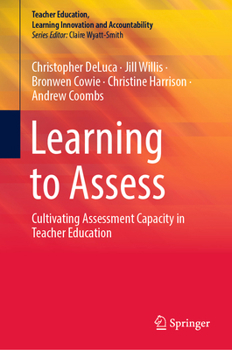Learning to Assess: Cultivating Assessment Capacity in Teacher Education
This book presents a new framework for how teachers develop their assessment capacity, based on a multi-year study conducted in four countries--Australia, Canada, England, and New Zealand--which focused on student-teacher learning in assessment throughout their initial teacher education programs. It examines how teacher learning is shaped by the complex dynamics of assessment capacity within larger teacher education contexts.
The framework proposed here identifies four domains involved in cultivating assessment capacity and characterizes assessment learning as always integrating cognitive, philosophical, and moral dimensions with assessment's social, emotional, and physical dimensions, while recognizing that each capacity is continually shaped by the learning context. The book draws on the survey of teacher education programs in each of the four focal countries and data from student teachers to shed light on how the various pedagogies, program structures, and policies encountered provide beginning teachers with codes for classifying and framing assessment capacity and form a template for developing this capacity throughout their careers.
Offering suggestions for future research and teacher education practice, the book concludes with an outlook on future steps to cultivate teachers' assessment capacity.





